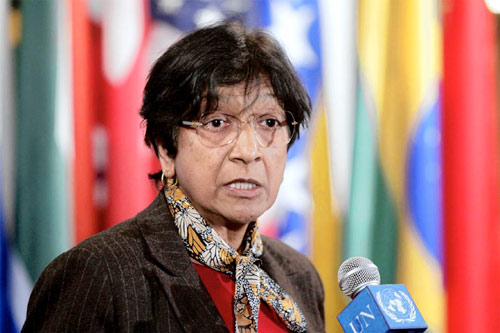The Florida Parole Commission voted 2-1 on Jan. 5 in approving the release of an HIV-positive Haitian woman from a Tallahassee jail, who has been diagnosed with late stage cancer.
The commission said Betsie Gallardo, 27, must be released on medical grounds to die at a Miami-Dade hospice rather than at her home in Indiana, as her family had requested.
The commission said that Gallardo, who was diagnosed with cancer a year ago, will be treated at the hospice as if she were on house arrest.
The exception to Gallardo’s sentenc is justified “because of the seriousness of Betsie’s illness and the amount of time she has left,” said Commissioner Tena Pate.
“I’m just overjoyed,” said Jessica Bussert, Gallardo’s mother.
Bussert said her daughter “is not expected to live more than a few weeks,” and that she would like to take her home to Indiana to “die with dignity.”
But Gallardo, who is serving a five-year sentence at Broward Correctional Institution in Tallahassee for biting and kicking a Collier County sheriff’s deputy in 2008, must remain in South Florida under the terms of her release.
In order for Gallardo to return to Indiana, the Indiana Department of Correction must accept custody of her, said Jane Tillman, a spokeswoman for the Florida Parole Commission.
Tillman said Florida officials would initiate the process to transfer Gallardo to Indiana’s custody, but she could not estimate how long that process would take.
Bussert said she fears a custody transfer may take longer than Gallardo has to live.
She hopes to win Gallardo’s immediate and unconditional release by applying for a pardon through Florida’s Office of Executive Clemency, and by personally lobbying newly-elected Florida Governor Rick Scott.
Gallardo’s prison sentence stems from an August 2008 arrest in Naples, Fl., on a charge of child neglect.
She had left her boyfriend’s child home alone for more than 30 minutes and driven his car into a ditch after taking Xanax, a prescription drug for anxiety.
According to the police report, Gallardo was taken to the Naples jail, where she bit one deputy on the forearm and wrist, and kicked another in the knee as they tried to restrain her.
The child neglect charges were later dropped, but Gallardo was convicted of battery on a law enforcement officer and resisting arrest with violence.
Florida law makes it a third degree felony for HIV positive defendants to transfer body fluids in the commission of a violent act. Gallardo received a five-year sentence, the maximum, and was scheduled for release in May 2014.
Four months after beginning her prison sentence, though, Gallardo was diagnosed with cancer of the gall bladder. Bussert said the cancer has spread to Gallardo’s liver, lungs and ovaries, and that doctors have diagnosed her as incurable.
Despite the diagnosis, the Florida Parole Commission declined Gallardo’s request for a conditional medical release in October.
Later, the commission, however, reconsidered Gallardo’s request because her cancer has worsened. She was recently diagnosed with an inoperable bowel blockage and can no longer hold down food, Bussert said.
Born HIV positive and raised as an orphan in Cité Soleil, an impoverished and populous neighborhood in Port-au-Prince, the Haitian capital, Gallardo and her younger sister, Germaine, were sickly and near death when an American couple on a missionary trip from Indiana met them in 1993.
Joshua and Sharon Bussert adopted the girls, and took them home to Lafayette, Ind., raising them along with their own biological children and several other adopted children. Years later, Joshua had a sex-change operation, and is now Jessica.
























